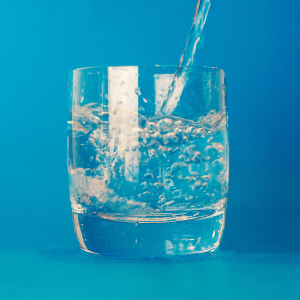The Importance of Staying Hydrated

Staying hydrated is essential for good health. Our bodies are made up of about 60% water, and every system in the body relies on water to function properly. In this article, we’ll discuss the importance of staying hydrated and provide some tips to help you stay on track with your hydration needs.
Why Is Staying Hydrated Important?
Staying hydrated has numerous health benefits, including:
- Regulating body temperature: Water helps regulate body temperature, which is important for optimal health and performance.
- Aiding in digestion: Water helps move food through the digestive system and prevents constipation.
- Supporting kidney function: Water helps flush toxins and waste products from the body through the kidneys.
- Lubricating joints: Water helps lubricate joints and prevent injury.
- Maintaining skin health: Proper hydration can help prevent dry skin and promote a glowing complexion.
How Much Water Do You Need?
The amount of water you need depends on various factors, including your age, sex, activity level, and overall health. In general, the recommended daily amount of water for adults is around 8-10 cups per day, although this can vary based on individual needs. I usually recommend drinking at least half of your body weight in fluid ounces per day.
Example: I weigh 180 pounds, then I need to drink at least 90 fluid ounces of water daily.
Tips to Staying Hydrated
Here are some tips to help you stay hydrated:
Carry a water bottle
Carrying a water bottle with you throughout the day can help you stay on track with your hydration needs. Choose a water bottle that you like and that is easy to carry with you, whether you’re at work, at the gym, or running errands.
Set reminders
If you have trouble remembering to drink water throughout the day, try setting reminders on your phone or computer to prompt you to drink water. You can also set specific goals for yourself, such as drinking a certain amount of water by a certain time.
Drink water before, during, and after exercise
During exercise, your body loses water through sweat, so it’s important to drink water before, during, and after exercise to stay hydrated. Aim to drink 17-20 ounces of water 2-3 hours before exercise, 8 ounces of water 20-30 minutes before exercise, and 7-10 ounces of water every 10-20 minutes during exercise.
Eat hydrating foods
In addition to drinking water, you can also get water from the foods you eat. Some hydrating foods include:
- Cucumbers
- Watermelon
- Oranges
- Tomatoes
- Bell peppers
- Broccoli
Avoid dehydrating beverages
Some beverages, such as alcohol and sugary drinks, can dehydrate the body and should be consumed in moderation. To stay hydrated, choose water, unsweetened tea, or other low-sugar beverages.
Staying hydrated is essential for good health. By carrying a water bottle, setting reminders, drinking water before, during, and after exercise, eating hydrating foods, and avoiding dehydrating beverages, you can stay on track with your hydration needs and enjoy the numerous health benefits that come with proper hydration. Remember that small changes can make a big difference in your health, and staying hydrated is a simple and effective way to feel your best.
Bonus tip
Here are some additional tips to help you stay hydrated:
- Add fresh fruit or herbs to your water for flavor.
- Use a water-tracking app to help you stay on track with your hydration goals. I use MyFitnessPal
- Drink water with every meal.
- Choose water instead of sugary drinks when dining out.
- Avoid drinking too much caffeine, as it can dehydrate the body
- Drink water first thing in the morning to help kickstart your hydration for the day.
- Keep a glass or bottle of water by your bed at night to drink if you wake up thirsty.
- Drink a glass of water before meals to help prevent overeating.
- Invest in a water filtration system to ensure that your water is clean and safe to drink.
